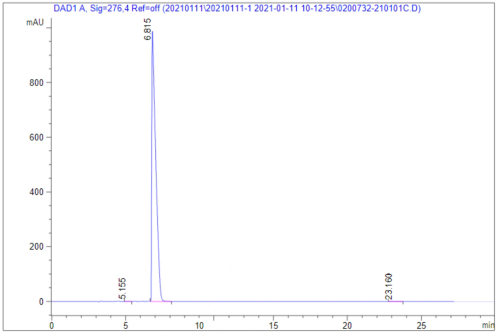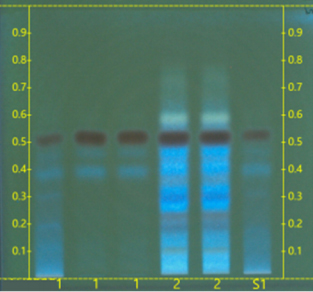A medicinal root used to prevent colds and boost energy
American ginseng (Panax quinquefolius) is a plant native to North America that is used in herbal medicine. A member of the ivy family, American ginseng roots are available whole and can also be found in dietary supplements and teas. Active Monomor

American ginseng is considered an adaptogen which some people claim can help the body overcome physical or emotional stress. American ginseng also has strong antioxidant properties which may protect against cell damage.
When used as a supplement, there is some evidence that American ginseng can help lower blood sugar, improve fatigue, and reduce the duration of colds and flu.
This article discusses the potential uses and benefits of American ginseng. It also lists possible side effects, interactions, and recommended dosages.
American ginseng is a distinctive type of ginseng used in traditional Chinese medicine. American ginseng and Asian ginseng (Panax ginseng) are both considered true ginseng in that they contain an organic chemical called ginsenoside .
Even so, American ginseng has a different chemical makeup and "cooler" yin qualities than Asian ginseng. It is also less stimulating. Because of this, American ginseng is widely exported to Asia where it is highly valued for its cooling and sedative effects.
Siberian ginseng (Eleutherococcus senticosus) is not a true ginseng, It is a small, woody shrub with blackberry-like fruit found in northeastern Asia. While it is also used in traditional Chinese medicine, neither the berries, leaves, stalks, nor roots contain ginsenoside.
The evidence supporting the health benefits of American ginseng is limited, most of which comes from lab and animal studies. Human trials are lacking.
With that said, a growing body of research suggests that American ginseng may be beneficial in the treatment of fatigue, poor memory, diabetes, and viral respiratory infections like colds and flu.
A 2018 review of four studies suggests that American ginseng may help relieve fatigue caused by chronic illnesses ranging from chronic fatigue syndrome (CFS) to cancer. The most significant benefit was seen in people who took 2,000 milligrams (mg) daily for eight weeks.
Similar results were seen in a 2019 review examing the effects of American ginseng on people with cancer-related fatigue. In this study, the benefit was greatest in people undergoing active treatment, like chemotherapy or radiation.
As an added bonus, American ginseng does not interact with commonly prescribed chemotherapy drugs like tamoxifen, doxorubicin, methotrexate, or fluorouracil.
Limited evidence suggests that American ginseng may improve cognitive function in some people. This includes the ability to learn, think, reason, and remember.
A 2015 study reported that healthy adults who received a single 200 mg dose of an American ginseng extract (called Cereboost) had increased working memory, peaking within three hours of the dose. The findings were limited by the small size of the study (52 adults) and the lack of a control group (meaning a group given a sham placebo).
A 2022 study involving 61 adults showed longer-lasting improvements in working memory after taking 200 mg of Cereboost daily for two weeks. For this study, a control group was included, but the findings were limited by the fact that the research was funded by the manufacturer, Naturex SA.
An unrelated study published in 2012 reported that an American ginseng extract taken twice daily for four weeks improved the working memory of 32 people with schizophrenia compared to a matched set of adults given a placebo.
A 2014 review of 16 ginseng trials concluded that the fasting blood sugar was modestly lowered by taking ginseng. Three of the 16 studies looked at American ginseng specifically.
A 2019 study involving 24 adults with well-controlled type 2 diabetes showed that a 3,000 mg dose of American ginseng taken daily helped control blood sugar. At the end of the eight-week study, the people given American ginseng had lower hemoglobin A1C levels, fasting blood sugar, and systolic blood pressure than those given a placebo.
The findings were limited by the fact that the participants' blood sugar was already controlled by medications. At present, there is no evidence that ginseng is able to manage diabetes on its own.
According to a 2017 review of studies in the Journal of Complementary and Alternative Medicine, American ginseng may offer protection against common viral respiratory infections like colds and flu. This supported earlier research in which American ginseng appeared to reduce the risk and duration of colds and flu in older adults with weakened immune systems.
A 2020 analysis published in Complementary Therapy and Medicine suggested that American ginseng may help prevent or treat seasonal respiratory infections in some people, but that the evidence wasn't strong enough to offer a clear conclusion.
Preliminary studies have investigated American ginseng for the following conditions:
The U.S. Food and Drug Administration (FDA) has not approved American ginseng for use in treating or preventing any medical condition. Ginseng should not be used in place of medications prescribed for you by your healthcare provider.
American ginseng is generally regarded as safe. In clinical trials, doses of 2,000 mg daily were well-tolerated and had the same rate of side effects as a placebo.
The long-term side effects of ginseng use aren't known.
Some groups of people should take special precautions when using American ginseng and may need to avoid it altogether. These include conditions like:
There is no recommended dosage of American ginseng in any form. Never exceed the recommended dosage on the product label, or ask your healthcare provider for advice.
American ginseng has been studied at the following dosages:
At these doses, American ginseng is unlikely to cause toxicity. At higher doses—typically 15 grams (1,500 mg) or more per day—some people develop "ginseng abuse syndrome" characterized by diarrhea, dizziness, skin rash, heart palpitations, and depression.
American ginseng may interact with prescription and over-the-counter medications and supplements. These include:
To avoid interactions, tell your healthcare provider if you intend to use any supplement.
American ginseng is an ingredient found in many commercial food products in the United States. It can also be purchased online or in stores in supplement form.
American ginseng is used as an additive in some energy drinks and ginger candies. There are also American ginseng teas sold in grocery stores, supplements stores, and health food shops. Whole dried root and granulated ginseng root can also be used to make teas and tonics.
As a supplement, American ginseng is available as a tablet, capsule, powder, extract, or tincture. Tablets and capsules may be better options than whole root ginseng as you can control the dose.
Store ginseng tea, supplements, and dried root in airtight containers in a cool, dry place. Keep away from children and pets. Discard after one year or by the expiration date on the product label.
Dietary supplements are not strictly regulated in the United States, To ensure quality, choose supplements that have been voluntarily submitted for testing by an independent certifying body like U.S. Pharmacopeia (USP), ConsumerLab, or NSF International.
Certification does mean that the supplement works or is inherently safe. It simply means that no contaminants were found and that the product contains the ingredients listed on the product label in the correct amounts.
Some other supplements that may improve cognitive function and decrease stress are:
Supplements that have been studied for the treatment or prevention of respiratory viruses like the cold or flu include:
Limited evidence suggests that American ginseng may help improve fatigue, mental function, diabetes, and respiratory infections like the cold and flu. Side effects and drug interactions are possible, and American ginseng can be dangerous if taken during pregnancy, breastfeeding, or in people with schizophrenia or certain cancers.
In some cases, integrative medicine shouldn't be a substitute for standard medical care. Use first-line treatments, and discuss with your healthcare provider about adding alternatives like American ginseng and other herbal remedies.
"Ginseng" is the generic name for plants from the genus Panax (meaning "cure of all diseases"). Thirteen Panax species have been identified, the most common being Panax ginseng (Korean ginseng) and Panax quinquefolius (American ginseng).
Some sources suggest taking American ginseng in the summer because it's thought to cool the body. However, little scientific evidence supports this.
During active treatment, cognitive behavioral therapy (CBT, a form of talk therapy) and hypnosis may be helpful. After treatment, some options that may reduce fatigue include acupressure, mindfulness-based cognitive therapy, and qigong.
Szczuka D, Nowak A, Zakłos-Szyda M, et al. American Ginseng (Panax quinquefolium L.) as a source of bioactive phytochemicals with pro-health properties. Nutrients. 2019;11(5):1041. doi:10.3390/nu11051041
Mancuso C, Santangelo R. Panax ginseng and Panax quinquefolius: From pharmacology to toxicology. Food Chem Toxicol. 2017;107(Pt A):362-372. doi:10.1016/j.fct.2017.07.019
Mancuso C, Santangelo R. Panax ginseng and Panax quinquefolius: From pharmacology to toxicology. Food Chem Toxicol. 2017;107(Pt A):362–372. doi:10.1016/j.fct.2017.07.019
Roe AL, Venkataraman A. The safety and efficacy of botanicals with nootropic effects. Curr Neuropharmacol. 2021;19(9):1442-67. doi:10.2174/1570159X19666210726150432
Arring NM, Millstine D, Marks LA, Nail LM. Ginseng as a treatment for fatigue: A systematic review. J Altern Complement Med. 2018;24(7):624–633. doi:10.1089/acm.2017.0361
Arring NM, Barton DL, Brooks T, Zick SM. Integrative therapies for cancer-related fatigue. Cancer J. 2019;25(5):349-356. doi:10.1097/PPO.0000000000000396
Ossoukhova A, Owen L, Savage K, et al. Improved working memory performance following administration of a single dose of American ginseng (Panax quinquefolius L.) to healthy middle-age adults. Hum Psychopharmacol. 2015;30(2):108-122. doi:10.1002/hup.2463
Bell L, Whyte A, Duysburgh C, et al. A randomized, placebo-controlled trial investigating the acute and chronic benefits of American ginseng (Cereboost®) on mood and cognition in healthy young adults, including in vitro investigation of gut microbiota changes as a possible mechanism of action. Eur J Nutr. 2022;61(1):413-28. doi:10.1007/s00394-021-02654-5
Chen EY, Hui CL. HT1001, a proprietary North American ginseng extract, improves working memory in schizophrenia: a double-blind, placebo-controlled study. Phytother Res. 2012;26(8):1166-1172. doi:10.1002/ptr.3700
Shishtar E, Sievenpiper JL, Djedovic V, et al. The effect of ginseng (the genus panax) on glycemic control: a systematic review and meta-analysis of randomized controlled clinical trials. PLoS One. 2014;9(9):e107391. Published 2014 Sep 29. doi:10.1371/journal.pone.0107391
Vuksan V, Xu ZZ, Jovanovski E, et al. Efficacy and safety of American ginseng (Panax quinquefolius L.) extract on glycemic control and cardiovascular risk factors in individuals with type 2 diabetes: a double-blind, randomized, cross-over clinical trial. Eur J Nutr. 2019;58(3):1237-1245. doi:10.1007/s00394-018-1642-0
Mousa HA. Prevention and treatment of influenza, influenza-like illness, and common cold by herbal, complementary, and natural therapies. J Evid Based Complementary Altern Med. 2017;22(1):166–174. doi:10.1177/2156587216641831
McElhaney JE, Goel V, Toane B, Hooten J, Shan JJ. Efficacy of COLD-fX in the prevention of respiratory symptoms in community-dwelling adults: a randomized, double-blinded, placebo controlled trial. J Altern Complement Med. 2006;12(2):153-157. doi:10.1089/acm.2006.12.153
Antonelli M, Donelli D, Firenzuoli F. Ginseng integrative supplementation for seasonal acute upper respiratory infections: A systematic review and meta-analysis. Complement Ther Med. 2020;52:102457. doi:10.1016/j.ctim.2020.102457
Lewicka A, Szymański Ł, Rusiecka K, et al. Supplementation of plants with immunomodulatory properties during pregnancy and lactation-maternal and offspring health effects. Nutrients. 2019;11(8):1958. doi:10.3390/nu11081958
By Megan Nunn, PharmD Megan Nunn, PharmD, is a community pharmacist in Tennessee with over twelve years of experience in medication counseling and immunization.
Thank you, {{form.email}}, for signing up.
There was an error. Please try again.

High Quality Siberian Ginseng Extract By clicking “Accept All Cookies”, you agree to the storing of cookies on your device to enhance site navigation, analyze site usage, and assist in our marketing efforts.